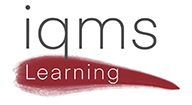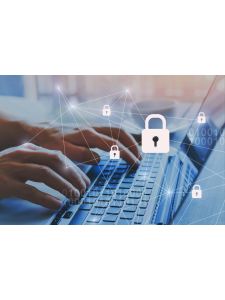With increasing complexity and demands of organisational processes there is a pressing need to ensure operational efficiency never drops. When it does, or where faults occur, it is critical that staff are equipped with the skills to investigate, determine cause(s) of the error and point to a solution. This investigation must be robust and always conducted in a time sensitive environment. Root Cause Analysis is an investigation process within the field of ISO Standards Management Systems such as ISO 9001 (Quality), ISO 14001 (Environmental) and ISO 45001 (Health & Safety) for example. This course will equip delegates with the knowledge, practical methods and skills to use RCA effectively in a variety of fault-finding applications.Duration1 Day, 09.00 – 17.00Who should attend?Routed in industry, RCA techniques are now commonplace in both product and service environments. Those with a responsibility in process efficiency at any level will benefit from understanding a range of proven methodologies used to conduct a robust root cause investigations and analyses to drive change and improve performance.Course contentThis course covers a range of RCA techniques and skills and uses a complex Case Study featuring an organisation which has established an Integrated Management System. The Case Study facilitates your Root Cause investigations to be conducted with a Quality, Environmental or Health & Safety focus as your investigation and learning brief demands. The course will cover; RCA Process What is Root Cause Analysis (RCA)? What are the steps involved in an RCA process? What methodologies are used within RCA? What are various types of causes? What are best practice guidelines when performing an RCA? What are pitfalls of RCA that you need to be aware of? 5 Whys What is the 5 Whys technique? What is the 5Ws1H technique? How can you use these for RCA? Questioning Skills How can you use a structured approach to make sure you ask the right questions? How to use this structured approach to make sure you ask a diverse set of questions about all potentially involved areas and processes? Evaluating Impact of Change and Decisions How to look forward to evaluate the impact of a change or a new decision on the current state? How to use this forward-looking approach systematically and correctly to get meaningful results? Cause and Effect Diagrams What is a cause-and-effect diagram? What is a fishbone diagram? How can you use this technique to search for root causes? Appreciation Technique What is appreciation technique? Often referred to as the “So What” approach used to consider the consequence of an upcoming change? Pareto Analysis What is Pareto principle? How can you use the Pareto Principle to prioritise your RCA approach systematically to avoid misdirecting resources and wasting time and money focusing on the wrong issues? Impact Analysis What is impact analysis? How can you use a powerful matrix to evaluate and focus on high-risk areas first? What are the 5 steps involved in an impact analysis? What are the benefitsConfident in Root Cause Analysis, those trained will be equipped to plan an investigation, prioritise time, question effectively, understand the relationship between cause and effect and apply risk-based thinking to identify suitable solutions.In-House CoursesOffering better value for money, they can be designed to closely match your specific requirements.Style of Delivery and Course LeadersOur course tutors are approved training providers, approved by BRCGS, CQI and IRCA, IEMA and Highfields Qualifications. They are qualified and experienced with extensive practical knowledge across a wide range of industrial, technical, product and service and commercial sectors.CertificationAll delegates will be awarded a certificate verifying attendance and satisfactory completion of the course.

Quality Courses
Our Quality Management Systems (QMS) courses are vital to organisations looking to improve the quality of their products and services, consistently meet their customers’ expectations, and manage an efficient supply chain. Our ISO 9001 Quality Management and Auditor courses help organisations understand, develop and improve their Quality Management Systems.
A one-day CQI and IRCA Certified training awareness programme for those requiring an introduction to the ISO 9001:2015 standard and how it can be used to develop and improve quality management systems. This foundation course gives an introduction to the most widely used standard for Quality Management in the world. Creation of a successful quality system relies on more than reading the text in the standard; it demands an understanding of requirements and a considered application of the standard to the organisation. This course will provide delegates with an insight into the important world of quality standards, their development and the certification process.Duration1 Day, 09.00 – 17.00Who should attend?Specially designed for managers, supervisors, those with potential quality roles or anyone wishing to understand and assess the impact and relevance of quality management to their organisations. Also useful to anyone who needs an introduction to quality assurance or those wishing to attend the CQI and IRCA Certified training 2-day auditor course without prior experience of quality systems.Course objectivesThis course will equip delegates with an understanding of the development and application of Quality Management techniques and how the ISO 9001:2015 standard is interpreted and implemented. On completion of the course we expect delegates to be able to: Describe the purpose of a quality management system with relevance to the 7 principles of quality management Explain the purpose, content and interrelationships of ISO 9000, ISO 9001, and ISO 9004 Interpret the requirements of ISO 9001 in the context of an effectively implemented business management system Course content Background to Quality Assurance Setting quality objectives The ISO 9001:2015 series standards Measurement and analysis Process Approach Continual improvement The 7 quality management principles Organisational Context ISO 9001 clause requirements Risk based thinking What are the benefitsAttendance will enable delegates to: Decide how best to develop the Quality Management Systems of their organisation Add to their quality management career credentials Understand the relevance of quality standards to their organisation Be able to set quality objectives. Demonstrate the competitive benefits of quality standards to their own and other organisations In-House CoursesOffering better value for money, they can be designed to closely match your specific requirements.Style of Delivery and Course LeadersOur course leaders have extensive experience in Quality Management across a wide range of sectors including manufacturing, service and professional organisations including Local, National and International Government. This wide experience enables them to make the course more interesting by using their relevant examples and case studies during workshop discussions. Our team of staff has extensive experience of working across cultural boundaries, through their work in Europe, Africa, the Middle East, Asia and the Americas.Certification Delegates successfully completing the course will be awarded a CQI and IRCA Certified training accredited certificate. (2350).
This 2-day course is designed to equip delegates with the knowledge and practical skills to create your own Quality Management System (QMS). Discover the actions, tools and techniques required to design, implement or improve a QMS including procedural and process information.Duration2 Days, 9.00 – 17.00Who should attend?Typically professionals who: Manage compliance obligations including statutory and regulatory requirements Are responsible for processes within an organisation Manage documentation and records keeping programs and systems Manage or oversee supplier and contractor quality-related performance Manage compliance or quality-related conformance audit programs Conduct strategic management reviews of quality-related performance outcomes Manage or oversee issue resolution relating to product, service or process quality Manage or overview improvement initiatives to enhance some aspect of quality Course objectivesLearn how to bring the necessary discipline and control to your operations with strategies to identify problems, assign resources and evaluate and improve the effectiveness of your system.Course content Understanding the elements of a QMS Establish the scope and purpose of a QMS based on stakeholder needs and expectations Design a QMS framework incorporating process management tools and techniques Undertake GAP analysis and document processes incorporating operational controls Implement or improve a QMS framework using training, communication and performance monitoring tools and techniques Evaluate performance results and implement improvements What are the benefitsAs a contributor to Continuous Personal Development, this course offers valuable day to day knowledge and skills essential to an efficient quality management system.In-House CoursesOffering better value for money, they can be designed to closely match your specific requirements.Style of Delivery and Course LeadersOur course leaders have extensive experience in Quality Management across a wide range of sectors including manufacturing, service and professional organisations including Local, National and International Government. This wide experience enables them to make the course more interesting by using their relevant examples and case studies during workshop discussions. Our team of staff has extensive experience of working across cultural boundaries, through their work in Europe, Africa, the Middle East, Asia and the Americas.CertificationDelegates successfully completing the course will be awarded an iqms Learning certificate of Attainment
This highly interactive two-day CQI and IRCA Certified training programme is designed for those people who require a sound understanding of the techniques and principles of quality auditing. It also covers the role of the internal auditor in the development and improvement of an effective quality management system. The role of the internal quality auditor is changing. It is no longer enough that internal audits check procedural conformance, but auditors now need to be able to audit processes with emphasis on risk. Delegates will also become more aware that they play a key role in the development and improvement of working practices across the organisation. This course focuses delegates on the most important attributes of a modern and effective quality management system and helps them to understand the role of the auditor in its development and continual improvement. It introduces delegates to the ISO 9000 series standard and the 7 quality management principles that underpin them.Duration2 Days, 09.00 – 17:10 (Day 1) 08.45 – 17:15 (Day 2)Who should attend?This course is essential for those who will undertake internal quality audits, or who will be required to plan, manage and implement internal audit programmes. Other people who find this course useful are team leaders and supervisors in quality-driven organisations, who are looking to broaden their awareness of quality issues in order to understand how they can improve their overall contribution to the success of the business. The course does not require any past auditing or quality management experience.Course objectivesTo enable those attending to plan, perform and report the results of internal quality audits with the aim of developing and improving the quality management system of an organisation. To help delegates understand the key attributes of an efficient and effective quality management system and the role of the internal auditor in its continual improvement and development. This course will equip delegates with an understanding of the development and application of Quality Management techniques and how the ISO 9001:2015 standard is interpreted and implemented.Course content Plan-Do-Check-Act methodology and other fundamental quality management principles Business process auditing Risk based thinking Quality Internal Auditor The structure and principles of the ISO 9000 series standards An overview of ISO 9001 Quality management system implementation issues Effective auditing techniques and good audit practice What are the benefitsThis course, combined with a CQI and IRCA certified ISO 9001:2015 Foundation course, satisfies the formal training requirements for those wishing to register with CQI and IRCA certified training as an Internal Quality Auditor. Successful delegates will be equipped with the technical skills and knowledge required to plan, conduct and report internal quality audits. Delegates also find the interactive nature of the course, its challenging content and extensive use of team-based exercises stimulating and surprisingly enjoyableIn-House CoursesOffering better value for money, they can be designed to closely match your specific requirements.Style of Delivery and Course LeadersOur course leaders have an unrivalled quality management systems design and improvement experience. They are qualified and experienced auditors with extensive practical management experience across a wide range of sectors including manufacturing, finance, pharmaceuticals, local and national government. We have extensive experience working across cultural boundaries, through our work in Europe, Africa, the Middle East, Asia and the AmericasCertificationDelegates successfully completing the course will be awarded a CQI and IRCA Certified training accredited certificate. (2351) If you're looking for the ISO 9001:2015 Lead Auditor course, please click here
This integrated management systems internal auditor programme combines the disciplines of quality, environmental and health & safety management auditing based on the ISO 9001:2015, ISO 14001:2015 and ISO 45001:2018 standards. This three-day interactive training programme is designed for those who need to be able to understand and apply recognised principles and techniques of effective management system auditing to quality, environmental and health & safety management systems. The modern management systems auditor cannot rely on procedural auditing, but also needs to be able to audit processes with an emphasis on risk-based thinking. An effective audit will bring benefits to your organisation and ensure the integrated management system (IMS) continues to meet its objectives. Internal auditors need to understand their role and responsibilities and be sufficiently competent in evaluating the IMS effectively. This course focuses delegates on the most important attributes of an IMS and helps them to understand the role of the auditor in its development and continual improvement.Duration3 days, 9.00 – 17.30Who should attend?This course is essential for those who will undertake internally integrated management system audits based on the ISO 9001:2015, ISO 14001:2015 and ISO 45001:2018 standards, or for those who will be required to plan, manage and implement internal audit programmes. Other people who will find this course useful are team leaders and supervisors within the IMS, who are looking to broaden their awareness of quality, environmental and occupational health & safety issues to understand how they can improve their overall contribution to the success of the business. The course does not require any past auditing or quality, environmental and health & safety management system experience.Course objectivesUpon successful completion of this course, students will: Understand the purpose and benefits of management systems Have a greater understanding of the structure, content and the intent of ISO 9001 and ISO 14001:2015 Be familiar with the terms and definitions used Have a greater understanding of the concept of the process model and apply the process approach Be aware of all stages of the audit cycle Gain the knowledge and skills necessary to plan, conduct, report internal audits of management systems Course content Overview of ISO 9001:2015 quality, ISO 14001:2015 environmental and ISO 45001:2018 occupational health & safety management system requirements Plan-Do-Check-Act methodology Quality and environmental management principles Risk-based thinking Auditors roles and responsibilities Types of audits Effective auditing tools and techniques and good audit practices Reporting valid findings and managing corrective actions What are the benefitsSuccessful delegates will be equipped with the technical skills and knowledge required to plan, conduct and report internal integrated management systems audits, saving both times spent on auditing and cost to your organisation. Delegates also find the interactive nature of the course, its challenging content and extensive use of team-based exercises an enjoyable and effective way to learn.In-House CoursesOffering better value for money, they can be designed to closely match your specific requirements.Style of Delivery and Course LeadersOur course leaders are management systems professionals, as well as being qualified, registered and experienced auditors. They have extensive knowledge across a wide range of sectors including manufacturing, finance, pharmaceuticals, local and national government. They have all cut their teeth as successful change agents within high profile organisations, and fully understand the range of technical, legislative and people challenges that face those with a responsibility for delivering real quality improvements.CertificationDelegates completing the course will be awarded an iqms Learning certificate.
This IOSH accredited integrated management systems (IMS) internal auditor course combines the disciplines of quality, environmental and health & safety management auditing, based on the ISO 9001:2015, ISO 14001:2015 and ISO 45001:2018 standards. Whilst accredited auditing courses are available for single discipline auditors, integrated management systems auditing courses mostly do not award a certificate giving any recognition from a recognised body. This course is a four-day intensive and interactive training programme aimed at developing practical and proficient auditing skills with an audit simulation on the final day. Designed for those who need to be able to apply recognised principles and techniques of effective management system auditing and to fast-track their development to be able to conduct effective audits of their integrated management system. Internal auditors need to understand their role and responsibilities and be sufficiently competent in evaluating the IMS effectively. The modern management systems auditor needs to be able to audit processes with an emphasis on risk-based thinking to ensure the integrated management system (IMS) continues to meet its objectives. By the end of the course delegates will be well-equipped to contribute to continual improvement of system and performance.Duration4 days, 8.30 – 17.15Who should attend?This accredited course is essential for those who are responsible for undertaking internal integrated management system audits based on the ISO 9001:2015, ISO 14001:2015 and ISO 45001:2018 standards. An essential course for those who will be required to plan, manage and implement internal audit programmes based on the quality, environmental and OHS standards. Other people who will find this course useful are managers, team leaders and supervisors, who are looking to broaden their awareness of QHSE systems and audits, gaining an understanding of how they can improve their overall contribution to the success of the business. The course does not require any past auditing or quality, environmental or health & safety management system experience.Course objectivesUpon successful completion of this course, students will: Understand the purpose and benefits of management systems Have a greater understanding of the structure, content and the intent of ISO 9001, ISO 14001 and ISO 45001 (including aspects/impacts, hazards/risk and the regulatory framework) Be familiar with the terms and definitions used in auditing systems Have a greater understanding of the concept of the process model and apply the process approach Be aware of all stages of the audit cycle Gain the knowledge and skills necessary to plan, conduct, report internal audits of management systems Express what audit documentation is required to complete effective audits and the elements of what an audit report should contain. Effectively follow-up and close out audit non-conformances What are the benefitsUpon successful completion delegates will be equipped with the technical skills and knowledge required to plan, conduct and report internal integrated management systems audits, saving both time spent on auditing and cost to your organisation. Delegates will also find the interactive nature of the course, it’s challenging content and extensive use of team-based exercises an enjoyable and effective way to learn.In-House CoursesOffering better value for money, they can be designed to closely match your specific requirements.Style of Delivery and Course LeadersA combination of presentations and guided exercises together with an interactive role-play exercise involving a simulated audit makes this course both highly beneficial and enjoyable for participants. Our course leaders are IRCA/IEMA qualified and experienced quality, environmental and occupational health & safety management systems auditors with extensive practical management experience across a wide range of sectors including manufacturing, service and utilities, professional, local and national government. We have extensive experience working across cultural boundaries, through our work in Europe, Africa, the Middle East, Asia and the Americas.CertificationDelegates successfully completing the course, including examination will receive an IOSH certificate.
This intensive ISO 9001 lead auditor course, is a challenging and highly interactive CQI and IRCA certified training program is for those people who require an in-depth understanding of the range of auditing techniques and protocols associated with the Lead Auditor role.Duration5 Days, 08.30 – 17.30 (days 1-3) 08.30 – 17.45 (day 4) 08.30 – 16.15 (day 5)Who should attend?Those attending this course are expected to have knowledge of the following: Quality management principles and concepts: The Plan, Do, Check, Act (PDCA) cycle The relationship between quality management and customer satisfaction Quality management terms and definitions and the 7 Quality Management Principles The process approach used in quality management Process Based Quality Management Systems The structure, content and requirements of ISO 9001 This knowledge can be gained in a number of ways: Previous experience and existing knowledge Attending a CQI and IRCA certified training ISO 9001 Foundation course – or equivalent Reading or self-study If you would like to attend our CQI and IRCA certified training registered ISO 9001 Foundation course at a discounted price to help you prepare for this Lead Auditor course please contact us.Course objectives To enable you to lead an audit team Audit the quality management system of an organisation to the requirements of ISO 9001:2015. Course content ISO 9001:2015 – evidence required for conformity Roles and responsibilities of auditors and lead auditors Processes and techniques for planning, conducting & reporting audits Audit follow-up activities and auditing for continual improvement What are the benefitsThe ISO 9001 training course is designed not only to help people perform value-adding quality audits but also to develop delegates’ wider understanding of quality management systems design and implementation. In particular, it will help delegates get to grips with those issues of ever-increasing importance, such as risk-based thinking, understanding how internal and external issues are managed by an effective management system, customer satisfaction, continual improvement and the management of processes. It will help delegates understand how these critical issues can be embedded into the quality management system of an organisation. Successful completion of the course and the achievement of the 50% pass mark will satisfy the formal training requirements for those wishing to register as an auditor, lead auditor or principal auditor with the CQI and IRCA Certified training scheme.In-House CoursesOffering better value for money, they can be designed to closely match your specific requirements.Style of Delivery and Course LeadersOur course leaders are quality management professionals, as well as being qualified, registered and experienced auditors. They have extensive knowledge across a wide range of sectors including manufacturing, finance, pharmaceuticals, local and national government. They have all cut their teeth as successful change agents within high profile organisations, and fully understand the range of technical, legislative and people challenges that face those with a responsibility for delivering real quality improvements.CertificationDelegates successfully completing the course, including examination, will be awarded a CQI and IRCA Certified training accredited certificate. (2352).
This intensive, challenging and highly interactive training program is for those people who require an in-depth understanding of the ISO 27001:2022 and associated standards, and the range of auditing techniques and protocols associated with the lead auditor role. Every organisation understands the importance of managing and taking care of its information securely, including legal, contractual and moral requirements to do so. On successfully completing the course, students will have an appreciation of the importance of controlling Information Security in all types of business; a detailed knowledge of ISO 27001:2022 Information Security Requirements and a detailed understanding of the principal requirements for auditing Information Security Management Systems (ISMS).Duration5 Days, 08:30 – 18:00 (days 1-4), 08:30 – 14:00 (day 5)Who should attend?This course satisfies the training requirements for those who wish to register as an ISMS lead auditor with the IRCA. It is also essential for anyone involved managing information and with a responsibility to design, implement and manage an ISMS management system that meets the requirements of ISO 27001:2022. Other people who have found this course useful in the past have been internal ISMS auditors who have been looking to enhance their auditing knowledge and skills, and those looking to achieve formal recognition for the skills and knowledge that they possess.Prior KnowledgeThose attending this course are expected to have knowledge of ISO 27001:2022 as well as experience in auditing and Information Security Management Systems.Course objectivesThe course objectives are to provide interpretation and understanding of Information Security Management Systems (ISMS), ISO 27001:2022 and auditing ISMS. The course is aimed at all levels of personnel from senior management to supervisors, who are concerned with the information security in their organisation. The course will also equip delegates with a sound knowledge of the requirements of ISO 27001:2022 and knowledge of associated standards.Course content Introduction to Information Security Detailed content of ISO 27001:2022 Similarities with other management systems standards Information Security Management Issues including operational control Information Security Audit Skills Practical exercises and feedback. What are the benefitsThe course is designed not only to help people perform capable and value-adding quality audits, but also to develop delegates’ wider understanding of quality management systems design and implementation. In particular it will help delegates get to grips with those issues of ever-increasing importance, such as customer satisfaction, continual improvement and the management of processes. It will help delegates understand how these critical issues can be embedded into the quality management system of an organisation. Successful completion of the course and the achievement of the 50% pass mark will satisfy the formal training requirements for those wishing to register as an auditor, lead auditor or principal auditor with the IRCA under the ISMS scheme.In-House CoursesOffering better value for money, they can be designed to closely match your specific requirements.Style of Delivery and Course LeadersOur course leaders have unrivalled experience in information security management systems design and implementation, including ISO 27001:2022. They are qualified and experienced auditors with extensive practical management experience across a wide range of businesses. We have extensive experience working across cultural boundaries, through our work in Europe, Africa, the Middle East, Asia and the Americas.CertificationDelegates successfully completing the course, including examination, will be awarded a CQI and IRCA Certified training accredited certificate. (2609).
This integrated management systems internal auditor programme combines the disciplines of quality and environmental management systems. The course is based on auditing to the ISO 9001:2015 and ISO 14001:2015 standards. This interactive three-day training programme is designed for those who need to be able to understand and apply recognised principles and techniques of effective management system auditing for quality and environmental management systems. The modern management systems’ auditor needs to be trained not only on procedural auditing, but also be able to audit processes with an emphasis on a risk-based approach. An effective audit will bring benefits to your organisation and ensure the integrated management system (IMS) continues to meet its objectives. Internal auditors need to understand their role and responsibilities and be sufficiently competent in evaluating the IMS effectively. This course focuses delegates on the most important attributes of an IMS and helps them to understand the role of the auditor in its development and continual improvement.Duration3 days, 9.00 – 17.30Who should attend?This course is an essential for those who will undertake internal integrated management system audits based on the ISO 9001:2015 and ISO 14001:2015 standards, or who will be required to plan, manage and implement internal audit programmes. Other people who find this course useful are team leaders and supervisors within the IMS, who are looking to broaden their awareness of quality and environmental issues in order to understand how they can improve their overall contribution to the success of the business.Course objectivesUpon successful completion of this course, students will: Understand the purpose and benefits of management systems Have a greater understanding of the structure, content and the intent of ISO 9001 and ISO 14001:2015 Be familiar with the terms and definitions used Have a greater understanding of the concept of the process model and apply the process approach Be aware of all stages of the audit cycle Gain the knowledge and skills necessary to plan, conduct, report internal audits of management systems Course content Overview of ISO 9001:2015 quality and ISO 14001:2015 environmental Management System requirements Plan-Do-Check-Act methodology Quality and environmental management principles Risk-based thinking Auditors roles and responsibilities Types of audits Effective auditing tools and techniques and good audit practices Reporting valid findings and managing corrective actions What are the benefitsSuccessful delegates will be equipped with the technical skills and knowledge required to plan, conduct and report internal integrated management systems audits, saving both time spent on auditing and cost to your organisation. Delegates also find the interactive nature of the course, it’s challenging content and extensive use of team-based exercises an enjoyable and effective way to learn.In-House CoursesOffering better value for money, they can be designed to closely match your specific requirements.Style of Delivery and Course LeadersOur course leaders are quality management professionals, as well as being qualified, registered and experienced auditors. They have extensive knowledge across a wide range of sectors including manufacturing, finance, pharmaceuticals, local and national government. They have all cut their teeth as successful change agents within high profile organisations, and fully understand the range of technical, legislative and people challenges that face those with a responsibility for delivering real quality improvements.CertificationDelegates successfully completing the course will be awarded an iqms Learning Integrated Management System (IMS) Auditor certificate.
We have extensive experience in developing bespoke training and coaching, designed to enhance the capability of your people to drive Management System improvement programmes and manage risks with confidence at all levels to achieve managed sustainable results.
Contact us to discuss how we can help you.









